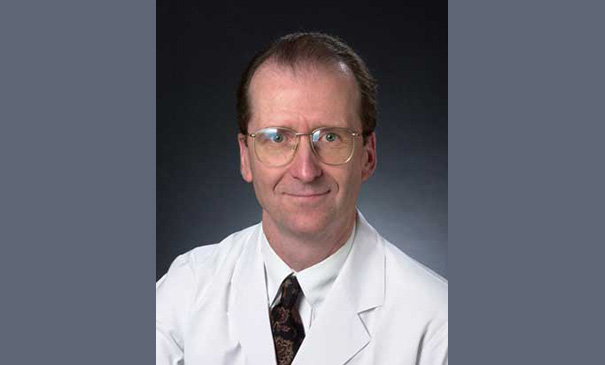
What if a “cancer breathalyzer” could detect esophageal cancer so early that many patients could be cured without surgery, chemotherapy or radiation? Virginia Mason surgeon Donald Low, MD, FACS, intends to find out, by developing a breath test that could transform diagnosis for the deadly disease.
“Esophageal cancers don’t typically show symptoms until they’re very advanced, which is why only 20 to 30 percent of patients live for five years after diagnosis,” Dr. Low says. “If a breath test could detect esophageal cancer before it spreads, we could cure many patients with an endoscopic procedure.”
The Salgi Foundation
The research is fueled by the Salgi Esophageal Cancer Research Foundation, which pools donations from individuals to fight esophageal cancer.
Linda Molfesi started the foundation in 2011 in memory of her father, who died from esophageal cancer. Now she runs the foundation with her daughter, Christina Frye. They organize fundraisers for many projects, including early-stage research like Dr. Low’s. This funding is vital because it helps researchers test their ideas and generate the data to apply for larger grants.
“We’re a small foundation and we don’t have a huge budget — so we look at which studies could impact the most patients and which scientist is most committed,” Linda says. “For us, that’s Dr. Low.”
How the “Cancer Breathalyzer” Would Work
The idea for a breath test to detect esophageal cancer started when Piers Boshier, PhD, who did his doctoral thesis on using breath testing to diagnose diseases, joined Dr. Low’s team last year.
Dr. Boshier’s previous research revealed that cancer patients have elevated levels of volatile organic compounds (VOCs) in their bodies. VOCs can be detected in the breath.
This led the researchers to the idea of a “cancer breathalyzer.” Dr. Low envisions patients breathing into a bag that captures their breath, then testing for VOCs that may indicate esophageal cancer.
The Salgi Foundation’s support is helping Dr. Low’s team — in partnership with Professor George Hanna, FRCS, PhD, at Imperial College London — study VOC levels in Virginia Mason patients with different stages of esophageal cancer. First, Dr. Low’s team will collect breath samples. Then Dr. Hanna’s team will analyze those samples for VOC levels. This will help determine whether specific VOC levels are tied to particular stages of esophageal cancer.
Eventually, the research team hopes to make this screening available for patients who have a high risk of esophageal cancer. If their breath samples test positive, doctors can use endoscopy to confirm the diagnosis and, if necessary, pursue treatment.
“We envision a day where esophageal cancers are no longer among the deadliest cancers,” Dr. Low says. “A simple early detection tool could be the first step in getting there.”
 |
| Terms of Use |  |
Privacy Policy |  |
Notice of Privacy Practices |  |
Site Map |  |
Home |